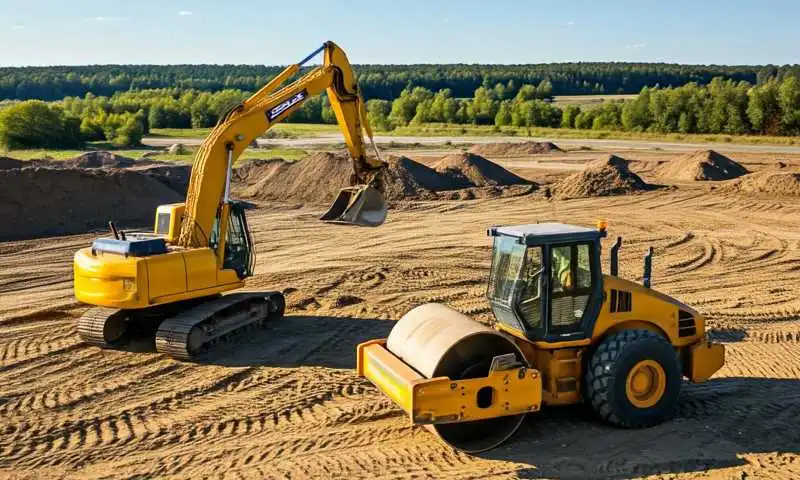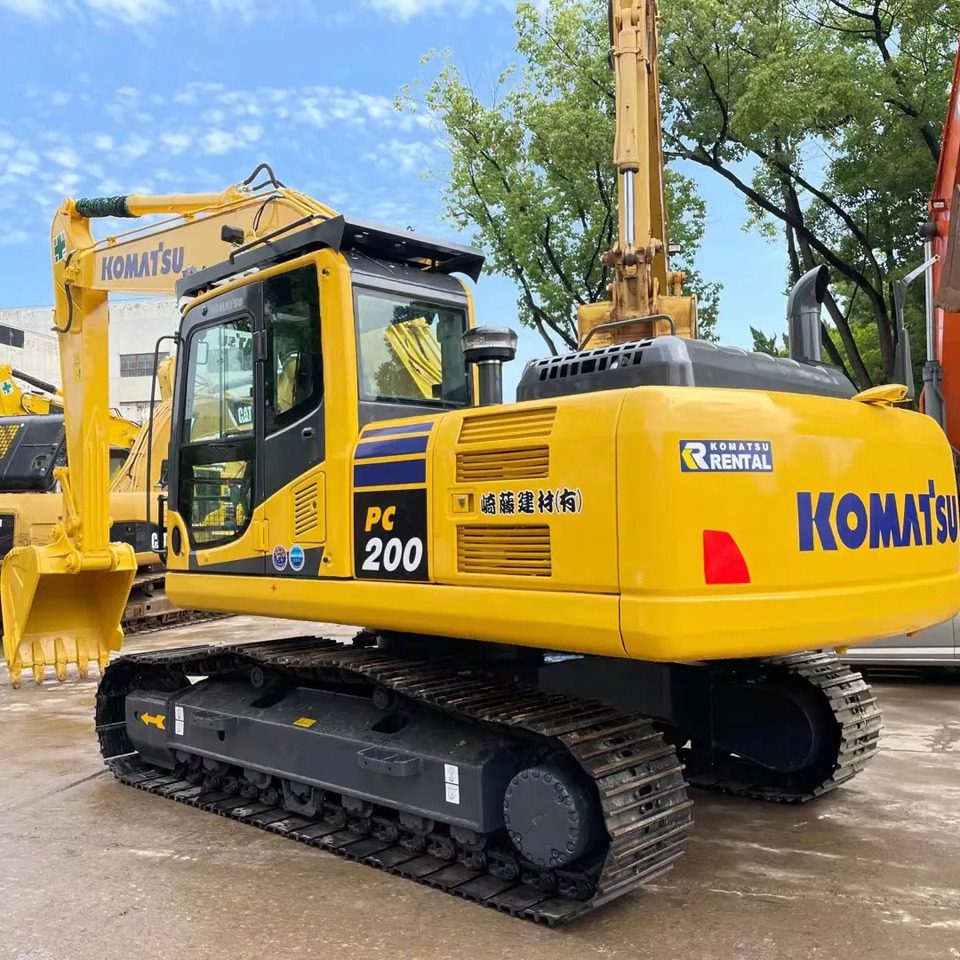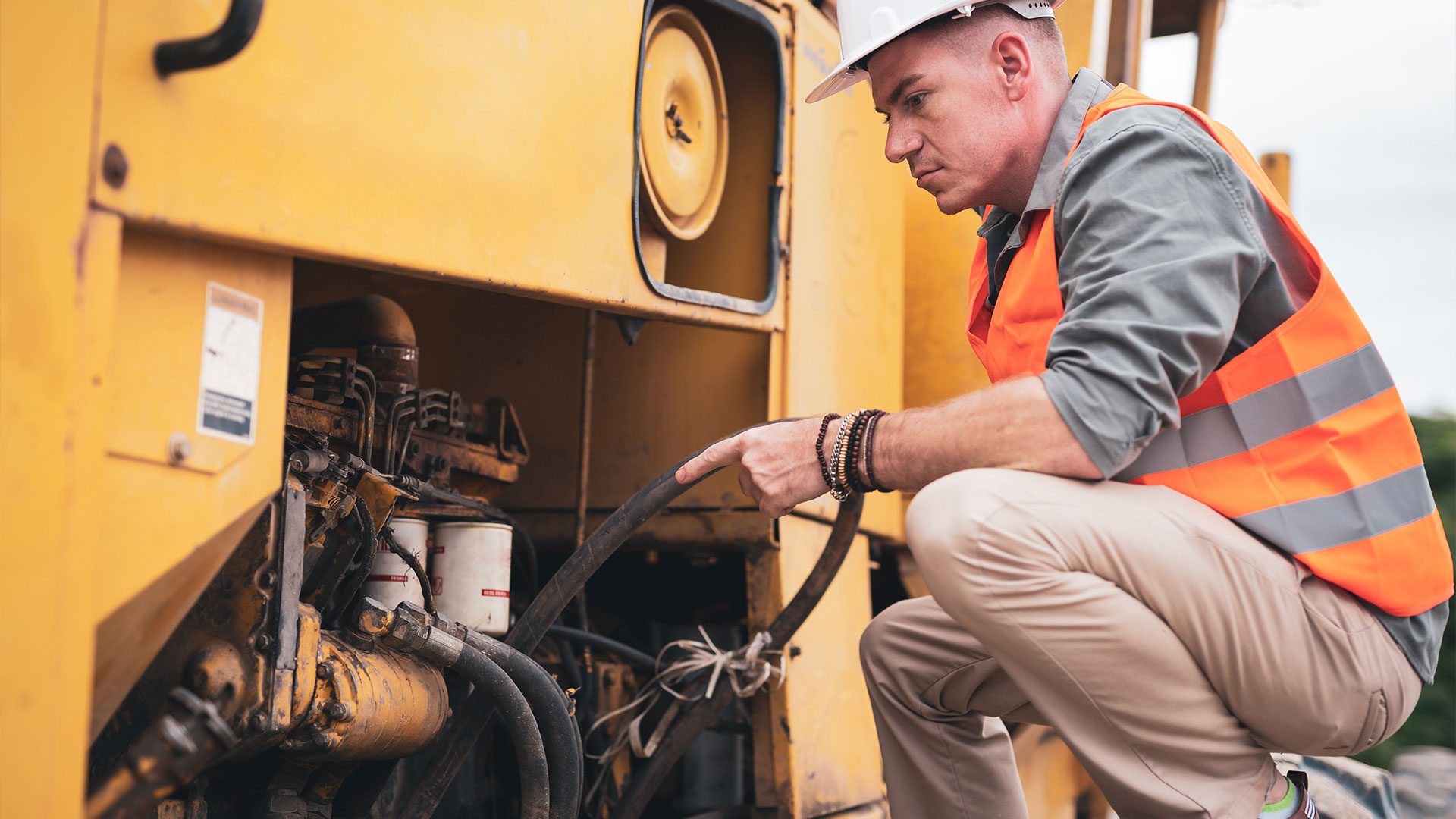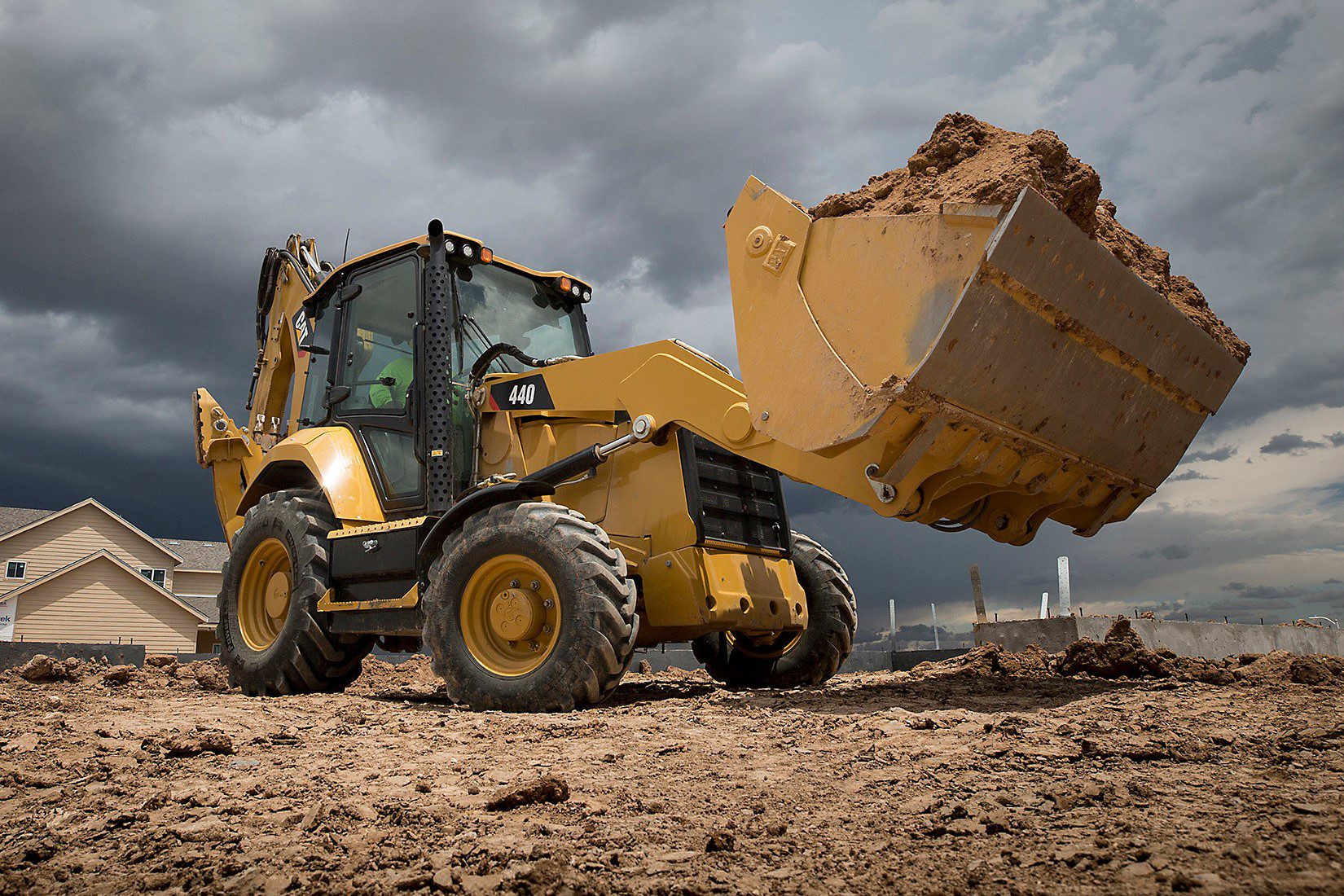Heavy equipment mechanics are a profession that is very much needed in the construction and mining industry. A mechanic plays an important role in ensuring that all heavy equipment can work optimally, good operation bulldozer, excavator, crane, dump truck, and so on.
Heavy equipment mechanics are required to have maintenance skills, repair, technical, as well as other supporting skills. Thanks to the mechanic's work, Heavy equipment damage can be handled immediately and on time downtime can be minimized for the sake of project productivity and safety.
Considering his role is very crucial, The profession of heavy equipment mechanic should only be carried out by people who are skilled and experienced in their field. Through this article, Let's get to know the duties and responsibilities of a heavy equipment mechanic, required qualifications, as well as his current career prospects.
What is a Heavy Equipment Mechanic?
Heavy equipment mechanics are individuals with special skills in repairs, treat, and ensure heavy equipment continues to operate properly. A mechanic's duties include checking engines, diagnose the problem, repair components, replace spare parts, and carry out routine maintenance to prevent damage.
This profession handles a variety of type of heavy equipment commonly used in the construction sector, mining, plantation, and transportation. Mechanics are responsible for maintenance and repair of equipment such as excavator, bulldozer, crane, loader, motor grader, wheel loader, etc.
This profession requires in-depth knowledge of mechanical systems, hydraulic, tires, and electronics in heavy equipment. This job requires high technical skills, good analytical skills, understanding of work safety procedures, as well as team work abilities.
Heavy Equipment Mechanic Duties and Responsibilities
A heavy equipment mechanic's job doesn't just involve maintenance, maintenance, and repairs to heavy equipment. The following are some of the duties and responsibilities of a mechanic on a project:
Routine Maintenance
Mechanics are responsible for carrying out routine inspections and preventive maintenance on heavy equipment. This task includes visual inspection, checking fluid levels (was, fuel, hydraulic fluid), component lubrication, filter replacement, and tire pressure checks.
Preventive maintenance aims to extend the service life of heavy equipment, reduce downtime, and prevent more serious damage. A mechanic must also monitor machine and system performance indicators, identify potential problems, and record and report inspection results.
Crash Repair
When heavy equipment is damaged or disturbed, the mechanic's main task is to identify the cause quickly and precisely. This process involves the use of modern diagnostic tools, error code analysis of computer systems onboard, and the application of deep technical expertise.
The mechanic must be able to evaluate the symptoms that appear, perform the necessary testing, and find the main source of the problem. After that, they are responsible for completing repairs which may involve replacing components, restoration of hydraulic or electrical systems, to do overhaul total on the machine.
Tool Installation and Setup
Modern heavy equipment has a variety of complex systems that require special maintenance and repair. Mechanics must have expertise in handling hydraulic systems, tires, electricity, and mechanics.
A mechanic is responsible for the installation process on new heavy equipment. They also take care of repairs or replacements heavy equipment spare parts like a hydraulic pump, cylinder, valve, electric motor, system control electronics, and transmission.
This task requires a deep understanding of how each system works as well as the ability to read technical diagrams and repair guides. They must also carry out proper calibration and adjustments to these components to ensure the machine functions optimally.
Documentation and Reporting
Accurate and complete documentation is an important part of a mechanic's job. They are required to record every work done, including routine maintenance, repair, and component replacement.
The mechanic must also prepare a detailed report regarding the diagnosis of the problem, action taken, spare parts used, as well as time estimates for each task. Documentation is required to track maintenance history, plan maintenance, and ensure compliance with safety standards and regulations.
Comply with Safety and Environmental Standards
Mechanics are responsible for ensuring all safety standards and environmental regulations are followed. They must always follow strict safety procedures when working with heavy equipment, such as using PPE and implementing procedures lockout/tagout to prevent accidents.
Besides that, they must also handle and dispose of hazardous materials such as used oil and hydraulic fluid in the correct manner, in accordance with applicable environmental regulations. Compliance with these standards is essential to maintain safety, sustainability, company reputation, and to avoid legal sanctions.
Required Qualifications for Heavy Equipment Mechanics
This profession cannot be done by just anyone because this work is related to in-depth understanding and special handling of heavy equipment. Besides that, This work also involves complex processes and has high risks.
That's why you can work as a mechanic, There are several terms or conditions that must be met. The following are some of the qualifications needed to become a heavy equipment mechanic.
- Formal education: usually high school/vocational school graduates, Diploma, as well as a Bachelor's degree in mechanical engineering, automotive, or heavy equipment.
- Technical Skills: able to read technical manuals and use heavy equipment diagnostic and maintenance equipment.
- Ability to analyze: Ability to diagnose problems and perform heavy equipment repairs efficiently.
- Certification and Licensing: have a certificate of permission to operate heavy equipment, special training, to occupational safety certification.
- Work Experience: practical field experience, apprenticeship, or program apprenticeship.
- Strong physical abilities: Able to work physically strong at the project site.
- Work safety procedures: understand safety procedures and ensure compliance with safety and environmental regulations
Heavy Equipment Mechanic Career Opportunities
Career opportunities for heavy equipment mechanics are very promising, especially in sectors such as construction, mining, to manufacturing. With increasing investment in infrastructure and exploration of natural resources, The need for skilled mechanical personnel is also increasing.
Graduates of heavy equipment engineering programs or similar fields have good prospects for working as heavy equipment mechanics. Apart from the extensive opportunities, This profession also offers a fairly high salary. To improve career prospects, mechanics can develop skills and obtain professional certification.
Types of Jobs Available
For those of you who want to pursue a career as a mechanic on projects, there are several types of work to choose from. Here are some of the types of jobs available to heavy equipment mechanics:
- Maintenance Mechanic: Responsible for carrying out regular maintenance on heavy equipment to prevent damage, like an oil change, hydraulic system inspection, and checking the condition of the machine.
- Repair Mechanic: Specialist in diagnosing and repairing damage to heavy equipment, including replacing damaged or worn components.
- Field Mechanic: Carry out repairs and maintenance of heavy equipment directly at the project or mine site, without having to bring tools to the workshop.
- Diagnostic Mechanic: Uses special tools and technology to diagnose problems with heavy equipment systems, such as electronic or hydraulic problems.
- Specialist Mechanic: Focuses on specific types of heavy equipment, like excavator, bulldozer, or crane, and has deep expertise in the field.
- Mechanical System Hydraulic: Specifically dealing with problems with heavy equipment hydraulic systems, including pump, valve, and hydraulic cylinders.
- Electronic Systems Mechanic: Handle heavy equipment electronic systems, including sensors, cable, and integrated software.
Each type of work has its own responsibilities and challenges, depending on the needs of the industry and work location you are working in.
Career Prospects
The mechanical profession has various or multilevel career paths, starting from novice mechanics to manager or technical director level. The following are the career prospects for heavy equipment mechanics that you need to know:
- Entry-level Mechanic: These mechanics generally work under the guidance of more experienced mechanics, perform basic tasks such as maintenance and minor repairs.
- Experienced Mechanic: These mechanics handle more complex repairs independently and may begin to focus on specific types of machines or systems.
- Specialist Mechanic: Mechanics have mastered deep expertise in certain fields, such as a hydraulic system, transmission, or electronic control.
- Senior Technician: This position includes greater responsibility, such as managing a major improvement project, diagnosing complex problems, and communicate with customers.
- Supervisor or Foreman: Supervisor leads a team of mechanics, arrange work schedules, ensure work quality standards, and managing resources.
- Workshop Manager or Fleet: This position is responsible for managing the overall operation of the workshop or heavy equipment fleet.
- Technical Specialist or Consultant: Mechanics who have technical expertise and provide training or consultation.
- Technical Instructor or Trainer: Instructor at a vocational school, heavy equipment manufacturer training center, or training programs organized by the company.
- High Level Manager or Technical Director: This position is responsible for overall maintenance and operational strategy.
It is important to remember that mechanic career paths can vary according to each company. Besides that, For career improvement or advancement, continuing education is usually also required, additional certification, and development of management skills.
Salary and Benefits
It is common knowledge that working on construction and mining projects will earn you a tempting income. A mechanic's salary and benefits can vary depending on experience, work location, type of company, as well as the level of expertise possessed.
Based on a review of several references, The following is the salary range for heavy equipment mechanics in Indonesia:
- Beginner mechanic: IDR 3 million – IDR 5 million per month.
- Experienced mechanic: IDR 5 million – IDR 10 million per month.
- Senior or specialist mechanic: Rp. 10 million – IDR 15 million per month or more.
Meanwhile, salaries for managerial positions such as supervisor or workshop manager can usually be higher, namely in the range of Rp 15.000.000 up to Rp 25.000.000 per month. Even the salary earned may also be higher, depending on the responsibilities carried out and the scale of the company.
Apart from salary, Heavy equipment mechanics usually also get the following allowances:
- Health and employment insurance
- Transportation and accommodation allowance
- Overtime pay
- Remote location allowance
- Training and certification
- Annual bonus
You need to remember that the nominal salary and allowances mentioned above may vary. Besides that, Many companies also provide additional benefits such as health insurance, performance incentives, or training opportunities that can add to the overall value of the compensation package.
Demand in the Labor Market
Market demand for heavy equipment mechanics is very high, along with the growth of the construction and mining industries. Many companies are looking for trained and certified workers to fill mechanic positions.
With technology continuing to develop, Companies also prefer candidates who have up-to-date knowledge of heavy equipment systems and technology. This creates opportunities for individuals who undertake related training and courses to increase their competitiveness in the job market.
Professional Mechanics and Optimally Functioning Heavy Equipment Play a Role in Project Success
The mechanical profession plays an important role in project success with the task of maintaining and repairing heavy equipment so that it continues to function optimally. By increasing the development of the construction and mining industry, Heavy equipment mechanics have very promising career prospects.
If you need it heavy equipment rental with reliable mechanics and guaranteed safety for your project, PT Perkasa Sarana Utama (PSU) ready to be your best equipment rental solution. We provide various types of heavy equipment including mini excavators of the best quality that can support the smooth running of your work.
With pleasure, our team will help you find the right machine for any project. To get the right solution that suits your needs, Don't hesitate to contact us at CS: 0811358378 or email: rent@psualatberat.com. To be more connected, You can also follow our Instagram at @psualatberat.








